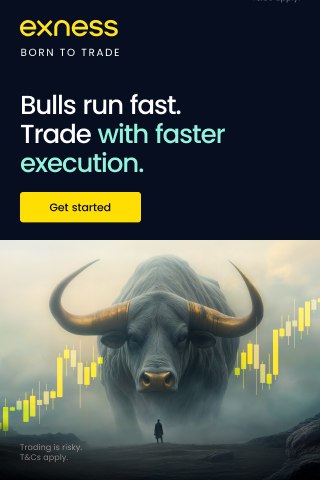
4 minute read
What is leverage in Exness? By Exness Trading Tips
Leverage is one of the most powerful tools in forex trading, allowing traders to control large positions with small capital. If you’re trading on the Exness platform and wondering what leverage means in Exness, how it works, and how to use it wisely, this guide is exactly what you need.
Let’s break down forex leverage in simple terms so you can trade with more clarity and confidence.
What is Leverage in Forex Trading?
In forex, leverage allows you to open trades larger than your actual deposit. For example, with 1:100 leverage, you can control $10,000 in the market with just $100 in your account.
This multiplies both potential profits and losses. It’s like using borrowed money to increase your trading power.
👉 Open an Exness account here to experience flexible leverage

How Leverage Works in Exness
Exness offers flexible leverage options. When you place a trade, Exness temporarily “lends” you additional capital so you can open larger positions. The actual funds used are called margin, and the rest is provided through leverage.
If you use 1:500 leverage:
You only need $2 to open a $1,000 trade.
If the market moves in your favor, your return is magnified.
But if it moves against you, your loss is magnified too.
Types of Leverage Options in Exness
Exness offers three main leverage models:
Unlimited Leverage: For qualified accounts, allows extremely high leverage up to 1:∞ (in demo or small balances).
Dynamic Leverage: Automatically adjusts based on your equity. Higher balance = lower maximum leverage.
Fixed Leverage: You set your desired leverage level manually (e.g., 1:100, 1:500, 1:2000).
👉 Click here to access your Exness dashboard and manage leverage
Leverage Levels by Account Type
Account Type
Standard Up to 1:Unlimited
Raw Spread Up to 1:2000
Zero Up to 1:2000
Pro
Up to 1:2000
Note: Leverage depends on your account balance and instrument. Some assets (like crypto) have lower limits.
You may also need:
Best Leverage for Beginners on EXNESS 2025
does EXNESS offer unlimited leverage
Does EXNESS have 1:1 leverage?
Example of a Leverage Trade on Exness
Imagine you have $100 in your Exness account.
You choose 1:500 leverage
You open a trade worth $50,000
A 1% price move in your favor = $500 profit
But a 1% loss = $500 loss, which wipes your account

That’s why using leverage requires strong risk control.
Pros and Cons of Using Leverage in Exness
✅ Pros:
Higher profit potential
Lower margin requirement
Great for short-term trades
⚠️ Cons:
Increases risk of losses
Can trigger margin call/liquidation
Not suitable for emotional or impulsive traders
How to Adjust Leverage in Your Exness Account
To change leverage:
Log in to your Exness Personal Area
Choose your trading account
Click “Settings” > “Change Leverage”
Select a new leverage ratio (e.g., 1:100, 1:500)
Click “Confirm”
Best Practices When Using Leverage
Start with lower leverage (1:100 or 1:200)
Use stop loss on every trade
Avoid over-leveraging your account
Keep margin level above 100%
Learn with a demo account first
FAQs
1. What is the highest leverage in Exness?
Exness offers unlimited leverage for eligible accounts under specific conditions.
2. Does high leverage mean more profit?
Yes, but it also means higher risk. Losses are also magnified.
3. Can I change leverage anytime?
Yes, as long as you have no open trades on that account.
4. What leverage is best for beginners?
Start with 1:100 or 1:200 until you understand risk management.
5. Is leverage the same on all assets?
No. Cryptocurrencies, stocks, and exotic pairs may have lower leverage caps.
6. Does Exness offer leverage on demo accounts?
Yes. You can even test unlimited leverage in demo mode.
Conclusion
Leverage in Exness is a powerful tool that can boost your trading performance — but only if you use it wisely. Understand how it works, start small, and always prioritize risk management.
👉 Ready to test leverage in action? Create your Exness account now and start trading with smart control.
See more:










